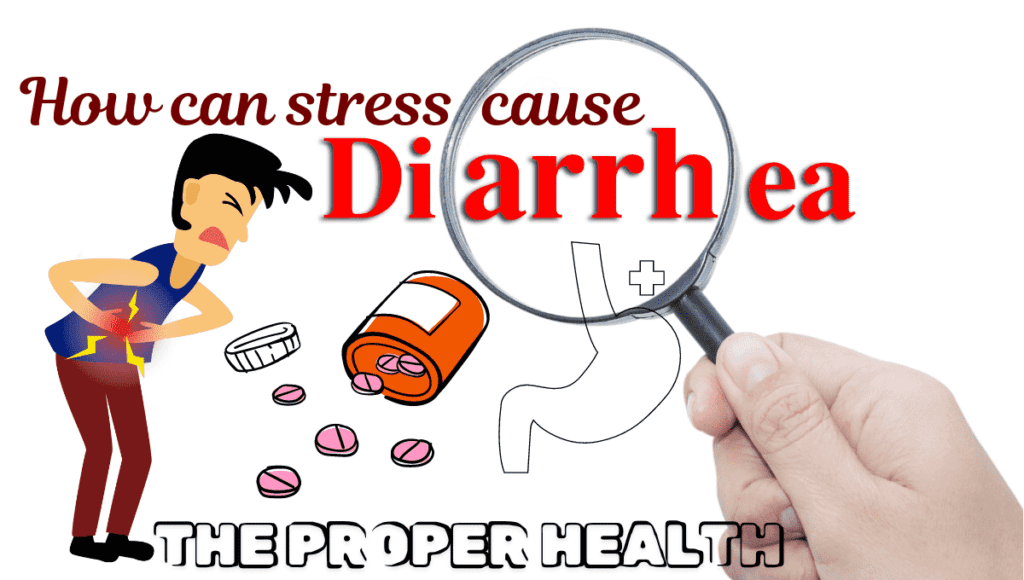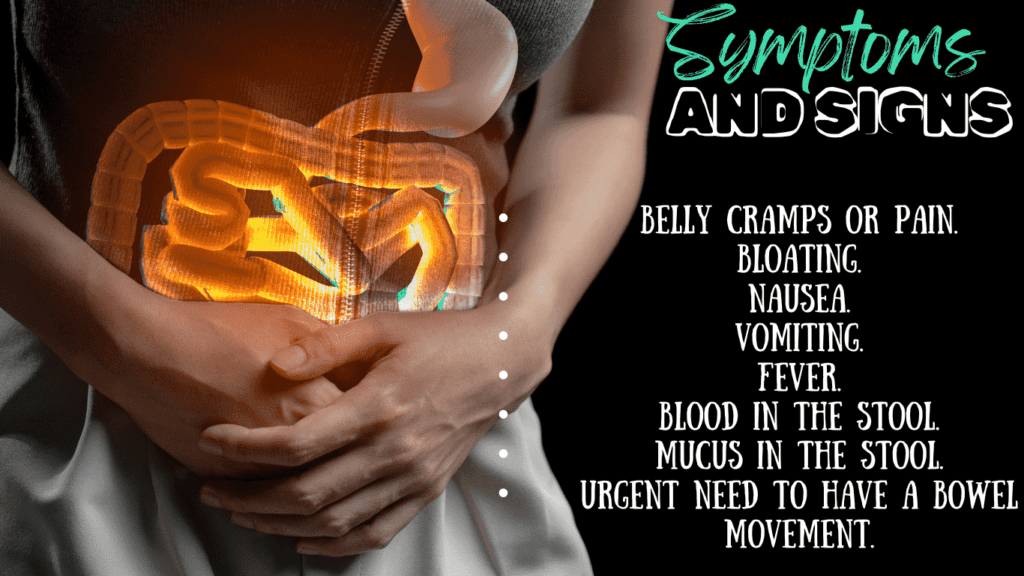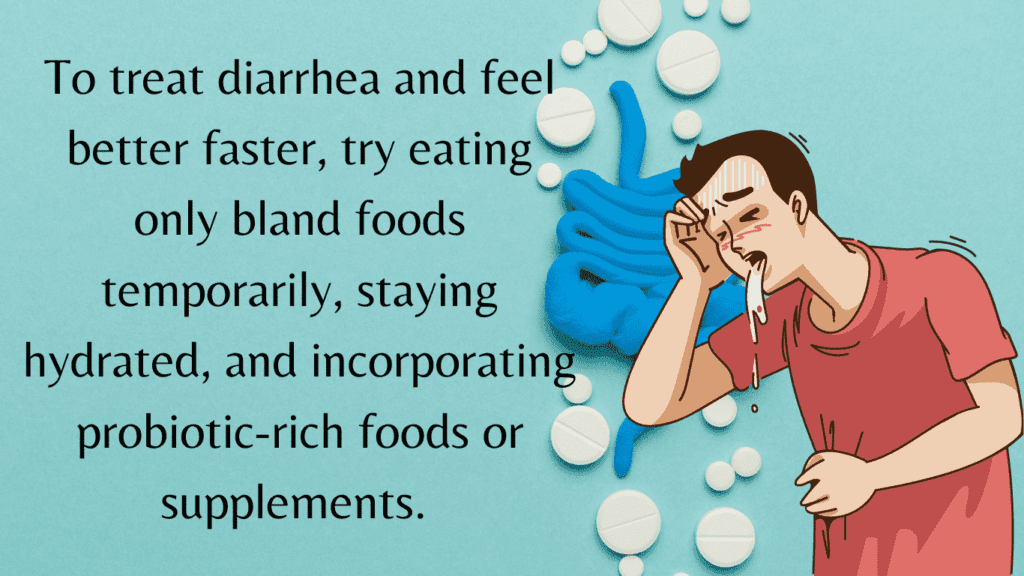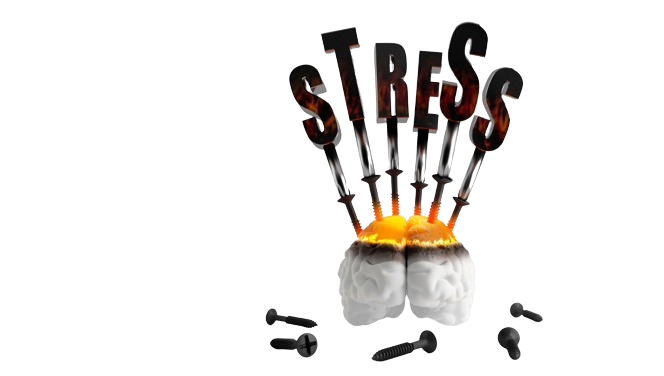
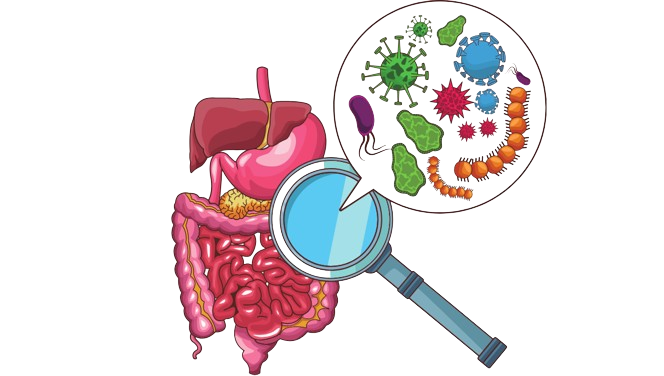
Understanding How Stress is related to Diarrhea
Altered Gut Motility
Increased Sensitivity
Changes in Gut Microbiota
Immune System Response
Dietary Changes
Nervous System Influence
Symptoms and Signs
Frequent Bowel Movements
Individuals may experience an increase in the frequency of bowel movements, often with urgency.
Loose Stools: Stools may be loose or watery, indicating a lack of proper absorption of water in the colon due to rapid transit time
Abdominal Cramping: Cramping or discomfort in the abdominal area may accompany stress-related diarrhea.
Urgency: There may be a sudden and urgent need to have a bowel movement, which can be difficult to control.
Incomplete Evacuation: Despite frequent bowel movements, individuals may feel like they haven’t fully emptied their bowels.
Gas and Bloating: Some people may experience increased gas and bloating along with diarrhea, which can contribute to discomfort.
Fatigue: Chronic stress and frequent diarrhea can lead to fatigue and a sense of tiredness.
Changes in Bowel Habits: Stress-related diarrhea may cause a departure from a person’s usual bowel habits, with sudden onset or exacerbation of symptoms during stressful periods.
Stressful Events: Diarrhea occurs in association with stressful events such as exams, job interviews, or relationship conflicts.
Chronic Stress: Individuals experiencing chronic stress, whether due to work, family, or other factors, may be more prone to stress-related diarrhea.
No Other Identifiable Cause: If medical tests and evaluations do not reveal any other underlying gastrointestinal condition or infection, stress may be considered as a potential cause.
History of Stress-related Symptoms: Individuals who have experienced gastrointestinal symptoms during stressful periods in the past may be more likely to attribute diarrhea to stress.
Response to Stress Management Techniques: Improvement in diarrhea symptoms with stress-reduction techniques such as relaxation exercises, meditation, or therapy can suggest a stress-related etiology.
Brain-Gut Connection
Neural Pathways: Stress activates the hypothalamic-pituitary-adrenal (HPA) axis, releasing cortisol and adrenaline. These hormones affect the ENS, altering gut motility, secretion, and sensitivity. Stress signals directly impact the ENS, influencing GI function.
Enteric Nervous System (ENS): The ENS, dubbed the “second brain,” consists of neurons in the GI tract walls. Stress can disrupt neurotransmitter balance in the ENS, affecting GI function autonomously or via CNS input.
Hormonal Changes: Stress hormones affect GI function. Adrenaline reduces intestinal blood flow, slowing digestion, while cortisol increases intestinal permeability, leading to inflammation and altered function.
Immune System Modulation: Stress alters the GI immune response, causing inflammation and microbiota changes, affecting GI function and symptoms.
Visceral Sensitivity: Stress heightens GI tract sensitivity to stimuli, leading to symptoms like abdominal pain, bloating, and altered bowel habits.
Impact of Stress
Increased Risk of Disorders: chronic stress heightens the risk of gastrointestinal disorders like irritable bowel syndrome (IBS), inflammatory bowel disease (IBD), GERD, and peptic ulcers, exacerbating symptoms and worsening disease progression·
Altered Gut Function: Stress disrupts digestive tract contractions, causing changes in gut motility. This disruption leads to symptoms such as diarrhea, constipation, or irregular bowel habits, especially in individuals with conditions like IBS.
Changes in Permeability: Stress hormones increase intestinal permeability, allowing toxins and bacteria to leak into the bloodstream. This “leaky gut” triggers immune responses and inflammation, exacerbating gastrointestinal symptoms and systemic health issues.
Impaired Nutrient Absorption: Stress-induced changes hinder nutrient absorption, potentially leading to deficiencies that worsen digestive problems and overall health.
Microbiota Imbalance: Stress disrupts gut microbiota balance, linked to digestive disorders like IBS and IBD. Dysbiosis contributes to inflammation, permeability issues, and gastrointestinal symptoms.
Increased Pain Sensitivity: Stress heightens pain perception in the gut, intensifying sensitivity to gastrointestinal discomfort and symptoms like bloating, cramping, and abdominal pain.
Compromised Immunity: Chronic stress weakens immune function, raising susceptibility to infections and inflammation in the digestive tract. This immune dysfunction can worsen or trigger gastrointestinal disorders.
Mechanisms
Treatment Approach
Natural Remedies
Dietary Adjustments
Herbal Supplements
Peppermint Oil: Peppermint oil is a popular herbal remedy for gastrointestinal symptoms, including diarrhea and abdominal pain.
It has anti-spasmodic properties that can help relax the muscles of the digestive tract, reducing cramping and diarrhea. Peppermint oil capsules or enteric-coated tablets may be effective in managing stress-related diarrhea.
Chamomile: Chamomile tea is known for its calming properties and may help reduce stress and anxiety levels.
Some studies suggest that chamomile extract may also have anti-inflammatory and anti-spasmodic effects on the gastrointestinal tract, potentially alleviating symptoms of stress-related diarrhea.
Ginger: Ginger has been used traditionally to relieve digestive discomfort, including nausea, bloating, and diarrhea.
It has anti-inflammatory and anti-nausea properties that may help soothe the digestive tract and alleviate symptoms of stress-related diarrhea.
Turmeric: Curcumin, the active compound in turmeric, has anti-inflammatory and antioxidant properties that may benefit gastrointestinal health.
Some research suggests that turmeric supplementation may help reduce symptoms of IBS, including diarrhea, by modulating inflammatory pathways in the gut.
Marshmallow Root: Marshmallow root contains mucilage, a gel-like substance that coats and soothes the digestive tract.
It may help alleviate symptoms of diarrhea and inflammation in the gastrointestinal tract.
Probiotics
Yogurt: Consuming probiotic-rich foods like yogurt containing live active cultures can help replenish beneficial bacteria in the gut and promote gastrointestinal health.
Probiotics may help regulate bowel movements and reduce symptoms of stress-related diarrhea, particularly in individuals with IBS.
Probiotic Supplements: Probiotic supplements containing specific strains of beneficial bacteria, such as Lactobacillus and Bifidobacterium species, may help alleviate symptoms of stress-related diarrhea.
It’s essential to choose a high-quality supplement with strains backed by research for gastrointestinal health.
Mind-Body Practices
Meditation and Relaxation Techniques: Engaging in mindfulness meditation, deep breathing exercises, progressive muscle relaxation, or yoga can help reduce stress levels and promote relaxation.
While these remedies can provide relief, it’s crucial to consult healthcare professionals, especially if you have medical conditions or are on medications. Addressing stress’s underlying causes and seeking comprehensive management strategies is essential for long-term relief.
Hydration
Hydration is vital during diarrhea episodes to replace lost fluids and electrolytes, prevent dehydration, and support overall health:
Fluid Loss: Diarrhea leads to significant fluid loss, risking dehydration, especially in severe or prolonged cases.
Electrolyte Imbalance: Loss of essential electrolytes like sodium, potassium, and chloride occurs with diarrhea, affecting muscle and nerve function and fluid balance.
Symptom Management: Adequate hydration alleviates diarrhea symptoms, including thirst, fatigue, weakness, and dizziness, improving well-being and preventing dehydration complications.
Tips for Maintaining Fluid and Electrolyte Balance:
Drink Fluids: Increase fluid intake with water, clear broths, herbal teas, and diluted fruit juices, avoiding caffeinated or alcoholic drinks worsening diarrhea.
Replenish Electrolytes: Consume electrolyte-containing fluids like sports drinks or oral rehydration solutions to restore electrolyte balance and hydration.
Eat Hydrating Foods: Include fruits and vegetables with high water content such as watermelon, cucumbers, oranges, and strawberries to boost fluid intake and nutrient intake.
Avoid Dehydrating Substances: Limit caffeine and alcohol intake, as they increase urine production, exacerbating fluid loss.
Monitor Urine Output: Aim for pale yellow to clear urine, indicating adequate hydration, and increase fluid intake if urine appears dark yellow or amber.
Consider Oral Rehydration Solutions: Over-the-counter oral rehydration solutions are designed to replenish fluids and electrolytes during diarrhea, promoting hydration and preventing dehydration.
Seek Medical Attention: If diarrhea is severe or prolonged, with signs of dehydration like excessive thirst, dark urine, dizziness, or weakness, or if you have underlying health conditions, consult a healthcare professional for appropriate management, including IV fluid therapy if necessary.
Prioritizing hydration and following these tips help maintain fluid and electrolyte balance during diarrhea episodes, supporting overall well-being and recovery.
Warning Signs
Identifying warning signs indicating a need for medical intervention during stress-related diarrhea episodes is crucial:
Persistent or Severe Symptoms: If diarrhea persists for more than a few days or is severe, with frequent loose stools, dehydration, abdominal pain, or cramping, seek medical attention. Chronic or severe diarrhea may signal an underlying gastrointestinal condition needing evaluation.
Signs of Dehydration: Watch for excessive thirst, dry mouth, dark-colored urine, infrequent urination, fatigue, weakness, dizziness, lightheadedness, or confusion, as they indicate dehydration. Seek immediate medical help if dehydration is suspected, as it can be life-threatening.
Blood in Stool: Bright red or dark, tarry stools may signal underlying gastrointestinal issues like inflammation, infection, or serious conditions such as IBD, ulcerative colitis, or Crohn’s disease, warranting medical evaluation.
Fever: Diarrhea accompanied by fever, particularly if high or persistent, may indicate infection or inflammation requiring medical attention and treatment.
Unintentional Weight Loss: Significant or rapid weight loss without lifestyle changes can indicate underlying health issues, including gastrointestinal disorders. Consult a healthcare professional if experiencing unexplained weight loss alongside diarrhea.
Persistent Pain or Discomfort: Chronic or severe abdominal pain, cramping, or discomfort associated with diarrhea may suggest an underlying gastrointestinal condition needing medical evaluation.
Other Symptoms: Pay attention to accompanying symptoms like nausea, vomiting, bloating, gas, or changes in bowel habits, which can provide additional clues to the underlying cause.
Prompt professional help is crucial if experiencing any red flags or concerns about symptoms. A healthcare professional can conduct a thorough evaluation, diagnose the underlying cause, and recommend appropriate treatment. Early intervention can prevent complications, alleviate symptoms, and promote gastrointestinal health and overall well-being.
Causes of Sudden Diarrhea
0:04 Causes of Sudden Diarrhea
0:17 Traveller’s Diarrhea
0:48 Viral Gastroenteritis
1:19 Medications
1:39 Food Intolerance
Long-term Strategies
Developing sustainable coping mechanisms for managing stress is crucial for long-term well-being and preventing recurrent stress-related diarrhea episodes. Here’s how to cultivate resilience and reduce stress:
Stress Management Techniques:
- Mindfulness Meditation: Increase awareness and reduce stress levels.
- Deep Breathing Exercises: Activate the body’s relaxation response.
- Progressive Muscle Relaxation: Alleviate muscle tension.
- Yoga: Improve flexibility, strength, and mental well-being.
Healthy Lifestyle Habits:
- Regular Exercise: Reduce stress levels and improve mood.
- Healthy Diet: Consume a balanced diet rich in fruits, vegetables, and whole grains.
- Adequate Sleep: Prioritize restorative sleep.
- Time Management: Set realistic goals and manage responsibilities effectively.
Relaxation and Leisure Activities:
- Engage in Hobbies: Find joy and relaxation in activities you enjoy.
- Nature Exposure: Spend time outdoors to reduce stress levels.
Professional Support:
- Therapy or Counseling: Seek guidance and support from mental health professionals.
- Medication: Consider medication therapy under healthcare provider guidance.
Maintaining Gastrointestinal Health:
- Healthy Eating Habits: Consume a balanced diet and stay hydrated.
- Mindful Eating: Chew food thoroughly and eat regular meals.
- Stress Management: Practice stress reduction techniques.
- Regular Exercise: Promote regular bowel movements.
- Avoid Trigger Foods: Identify and limit foods that trigger gastrointestinal symptoms.
Case Studies
- Highlighting the effectiveness of various treatment approaches in different scenarios.
